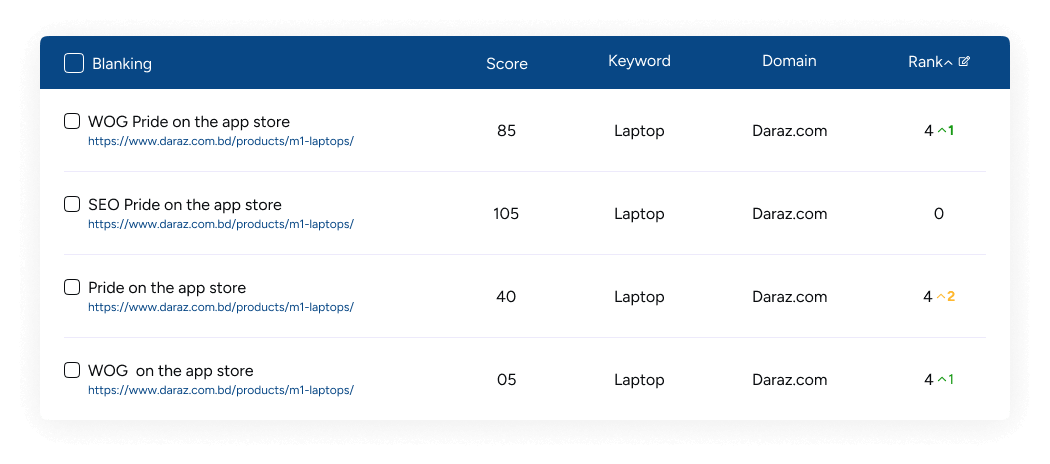Looking to grow your ecommerce web store, whether it’s Shopify, Magento, Adobe Commerce, Big Commerce, or even headless commerce? Our skilled web developers can build a solution that suits your company’s needs.
Depending on your company’s needs, different eCommerce platforms have strengths and weaknesses. Our team would be able to help you navigate to find the correct solution for your company’s requirements.
It depends on your business needs, but our sites are usually hosted on Digital Ocean, Google Cloud, and AWS.
Effective eCommerce web design services play a crucial role in online business success. A well-designed website can improve user experience, increase sales, and boost a brand’s online presence. With the right design, customers can easily navigate, find products, and make purchases.
In a competitive market, having an appealing and functional website is essential. It is not just about looks; a good eCommerce site must also be user-friendly and fast. Designers focus on creating layouts that highlight products and encourage customers to spend more time on the site.
Choosing the right eCommerce web design service can make a significant difference. Skilled designers understand current trends and customer behavior, which helps businesses attract and retain users. Investing in quality design can lead to higher customer satisfaction and better sales performance.
Effective eCommerce design focuses on creating a user-centered experience. It integrates user experience principles, responsive design essentials, and strong branding to attract and retain customers.
User experience (UX) is crucial for eCommerce success. A well-designed site leads to higher conversion rates. The key principles include:
Optimizing these elements enhances the shopping experience. A focused, clean layout also reduces distractions, keeping users engaged with the content.
Responsive design ensures that a website looks good on any device. This is essential as more users shop on mobile devices. Key aspects include:
Testing the site on different devices is critical. This helps identify any issues that may impact usability across platforms.
Branding establishes recognition and trust in an eCommerce platform. A strong visual identity includes:
Good branding not only attracts customers but also creates loyalty. Consistency in visual elements across that site builds a professional appearance that can enhance customer trust.
An effective eCommerce website structure is crucial for guiding visitors and encouraging purchases. It includes three main parts: navigational layouts, product page optimization, and a streamlined checkout process. Each element plays a key role in user experience.
Navigational layouts help users find what they need quickly. A clear menu structure is essential. Navigation should be simple and intuitive to encourage exploration.
Main navigation should include categories like Shop, About Us, and Contact. Dropdown menus can organize subcategories, making it easy to browse products.
Additionally, including a search bar allows users to find specific items. Breadcrumbs are useful for letting shoppers know where they are on the site. These features keep the layout tidy and user-friendly.
Product pages should provide all critical information clearly. Each page needs high-quality images and detailed descriptions. This helps users understand the products better.
Key elements to include are price, availability, and customer reviews. Highlighting any promotions or discounts can attract attention.
Using bullet points for features makes information digestible. Videos showcasing the products can also enhance interest. Layouts must be visually appealing while maintaining a clean design to avoid overwhelming the user.
A smooth checkout process is vital for reducing cart abandonment. It should require as few steps as possible to complete a purchase. Users should be able to add items to their cart and proceed to checkout easily.
Offering multiple payment options, like credit cards and digital wallets, increases convenience. Clearly stating shipping costs and delivery times is important for transparency.
Finally, allowing guest checkout can speed up the process for first-time buyers. An efficient checkout experience encourages completion and enhances customer satisfaction.
Conversion rate optimization focuses on improving website performance to boost sales and engagement. Key techniques include strategic calls to action and methods to increase user interaction, both of which are essential for improving conversion rates.
By implementing these methods, eCommerce sites can create a more engaging environment, ultimately leading to higher conversion rates.
A strong content strategy helps online retailers attract and engage customers. Focusing on SEO best practices and crafting effective product descriptions can greatly enhance visibility and sales.
SEO is crucial for driving traffic to an online store. Keywords play a significant role. They should be placed in titles, URLs, headers, and product descriptions.
Tips for SEO:
Product descriptions should not only inform but also persuade. A good description highlights key features and benefits while using engaging language.
Key Elements of Product Descriptions:
Using storytelling techniques can create an emotional connection. While being informative, it is helpful to maintain a consistent voice that reflects the brand’s identity. Descriptions should cater to the target audience’s needs and preferences.
Maintaining and supporting an eCommerce website is crucial for its success. Proper care helps keep the site running smoothly and ensures a positive experience for users. Two important areas of focus are ongoing technical support and website performance monitoring.
Technical support is essential for resolving issues that may arise after the website goes live. This includes fixing bugs, updating software, and addressing security concerns.
Support services may offer assistance through various channels, such as:
Regular maintenance tasks can also be part of ongoing support, including database backups, software updates, and code optimizations. Keeping the website up-to-date helps prevent larger issues down the line.
Monitoring website performance is key to ensuring it operates at its best. This includes checking loading speeds, uptime, and user experience.
Performance monitoring may involve:
Using tools like Google Analytics can help track these metrics. Regular reports can provide insights into how well the eCommerce site is performing and where improvements can be made. Timely adjustments based on monitoring data can boost customer satisfaction and retention.












We believe in transparency and provide regular updates and detailed reports on your campaign’s progress.
Ready to boost your online presence and drive more organic traffic to your website.



"I can't recommend [Your Company Name] enough. Their team is not only highly skilled and knowledgeable but also incredibly responsive and easy to work with. They truly go above and beyond to deliver exceptional results."

"I can't recommend [Your Company Name] enough. Their team is not only highly skilled and knowledgeable but also incredibly responsive and easy to work with. They truly go above and beyond to deliver exceptional results."

"I can't recommend [Your Company Name] enough. Their team is not only highly skilled and knowledgeable but also incredibly responsive and easy to work with. They truly go above and beyond to deliver exceptional results."

"I can't recommend [Your Company Name] enough. Their team is not only highly skilled and knowledgeable but also incredibly responsive and easy to work with. They truly go above and beyond to deliver exceptional results."

